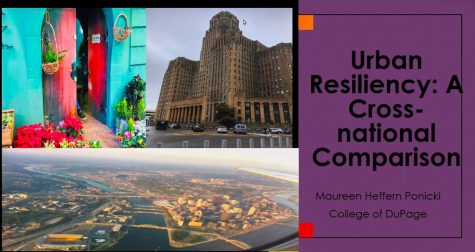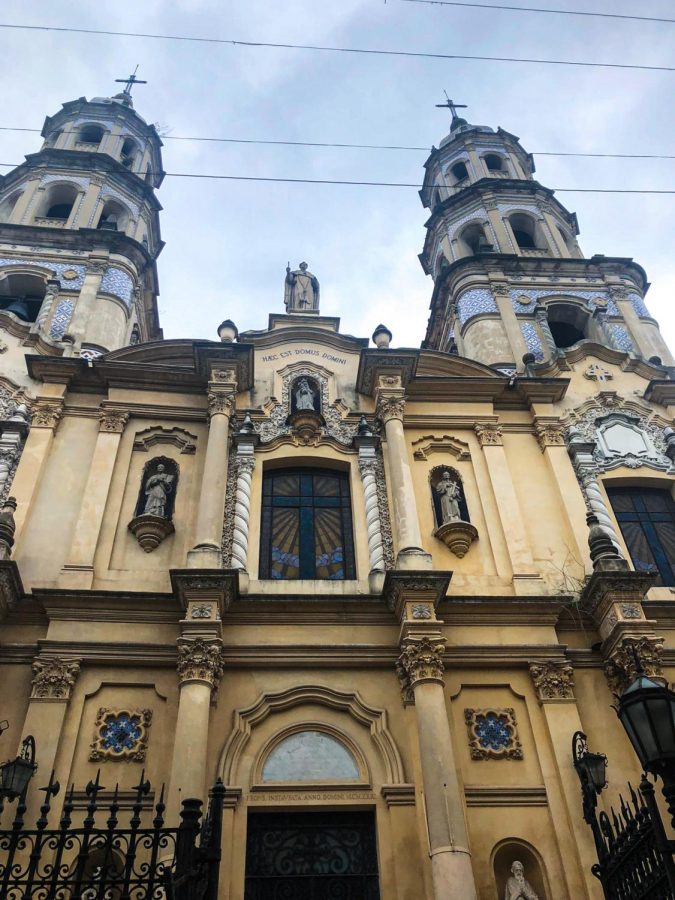Professor Maureen Heffern Ponicki Emphasizes Importance of Social Connections During Hispanic Heritage Month
This photo was captured by Professor Heffern Ponicki during her time in Argentina
September 26, 2021
In a session sharing research and insights from her time in Córdoba, Argentina, COD Professor Maureen Heffern Ponicki conveyed many lessons that the history, people and culture of Argentina can provide to the United States. and to students at COD. She emphasized the importance of connection for every aspect of individual and community life. “My kind of hope for all of us is that you find, take, the lessons from Latin America, from Argentina in this case, to find hope by connecting with others.”
An assistant professor of political science at COD, her research examined the cities of Córdoba, Argentina; Buffalo, N.Y., and Pittsburgh to find common themes that allowed quick economic resurgence in the aftermath of economic and/or political instability. Heffern Ponicki’s presentation, titled, “Urban Resiliency: A Cross-National Comparison” included an overview of how political scientists conduct research, a brief history and explanation of which similarities between Córdoba, Buffalo and Pittsburgh led to their inclusion in her work, and which cultural, political, and economic innovations and/or examples of ingenuity she found to be most fascinating. Her research includes time spent in Argentina interviewing leaders in politics, business, community and higher education.
 “My hypothesis, after talking to many of the interviewees, was that there are two main factors that help a city bounce back faster. The first is that a city with high levels of social connectivity…bounces back faster.”
“My hypothesis, after talking to many of the interviewees, was that there are two main factors that help a city bounce back faster. The first is that a city with high levels of social connectivity…bounces back faster.”
During her presentation she focused on periods of economic and political volatility in Argentina’s history, such as military coups that overthrew the democratic government, as well as deindustrialization and convertibility crises in which the value of the currency fell.
She noted that in the aftermath of these crises, the quick recoveries all had a common factor of social connectivity that could be identified in the solutions that the people of the city found. One such solution was the activity of small business associations.
“They call them PyMEs, Pequeña y Mediana Empresas, so they’re small business associations, and they’re very active, very strong,” she said.
Among other solutions she found social connectivity as a common theme were cooperatives and labor unions, as well as collaboration between grassroot organizations, non-profit organizations, universities and the federal government.
All of these aligned with her main message that high levels of social capital and cross network collaboration between groups allowed cities such as Córdoba and Pittsburgh to bounce back quickly after periods of instability. She also emphasized that this kind of collaboration was important at an individual level for overall health, to assist the learning process, and for groups to have greater ability to cause change by working together.
Heffern Ponicki provided a picture of many aspects of life in Argentina through the 1900s to present day. The resilience of the Argentinian people and willingness to be active in the community around them was continually emphasized in examples of labor unions, political activism and increased civic engagement. Innovations such as participatory budgeting, a process in which citizens decide how a city budget is allocated, showcased one example of how the people of Córdoba managed to move past downturns caused by political and economic unrest.
She urged COD students to find social connectivity by joining clubs and/or finding ways to work with different clubs and attend events that push you to be around people who you may not normally have an opportunity to interact with.
To this end, she structured her session to include two opportunities at the beginning and end of the presentation for attendees to introduce themselves, share what brought them to the event, and to express their thoughts. In this way Heffern Ponicki urged students to channel the spirit of the people of Argentina by being active participants in the community around them and allowing themselves to learn from and experience important elements of different cultures and build community partnerships.
This session took place on Sept. 23 as part of COD’s celebration of Hispanic Heritage Month, which takes place from Sept. 15 to Oct. 15.
More information about the Hispanic Heritage Month celebrations and events at COD can be found below:




















